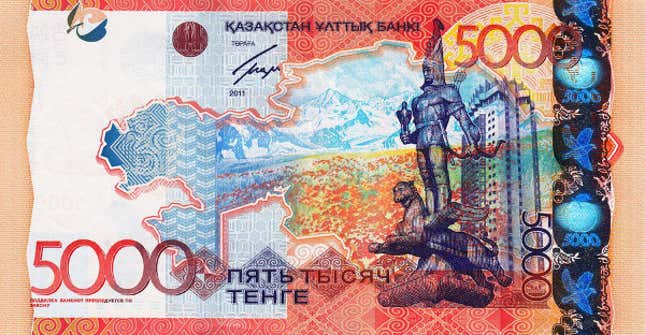And that’s beauty not as judged by our own whimsical criteria, but as determined by no less august a body than the International Bank Note Society (IBNS), which each year names a “banknote of the year.” It revealed its choice for 2012 last month. (For the record, you can nominate a note for 2013 up until January 31, 2014, for a mere $33.00, the price of a year’s membership to IBNS. You can see all the previous years’ nominations here.)
2004
The Canadian twenty-dollar note. It sports a pearl-encrusted Queen Elizabeth II gazing a little wistfully into the middle distance on the front …
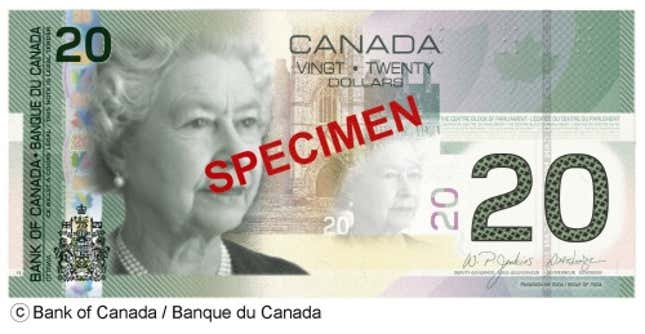
…Artwork inspired by northwest Canada’s Haida people on the back …
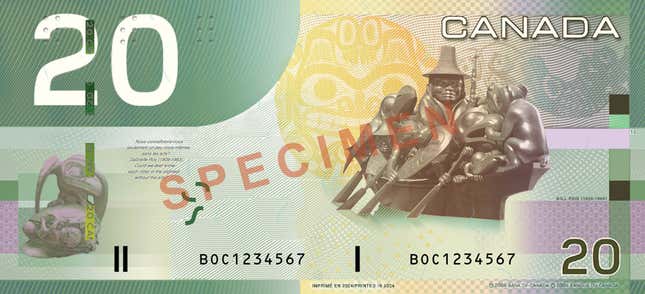
2005
The Faroe Islands 1000-kronur note. This tiny Danish archipelago territory in the north Atlantic has some world-class currency. This bill earned the nod for the top banknote issued in 2005, thanks in part to the incredibly detailed tail-feather view of a purple sandpiper emblazoned on the front…
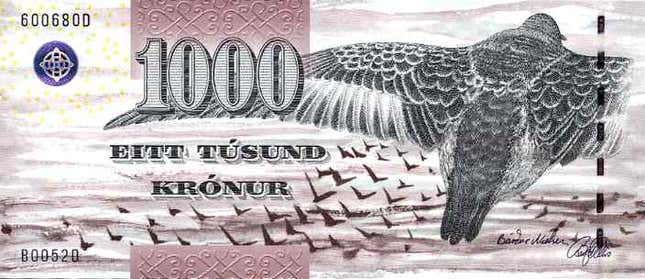
…And the somewhat impressionistic vista from the island of Sandoy that occupies the back. Faroese kronur notes are quite unusual in that their illustrations are based on watercolors.
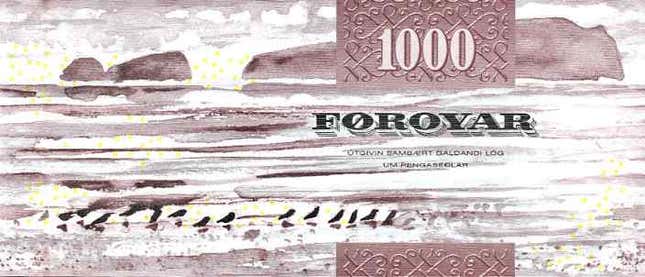
2006
The Comoros 1000-franc bill. Archipelagos seem to put a lot of effort into their currencies. This nation—located between the coast of southeast Africa and Madagascar—earned the coveted banknote award for this beauty. Swimming on the front is the coelacanth, an ancient fish thought to be extinct until it was rediscovered near Comoros in 1938…
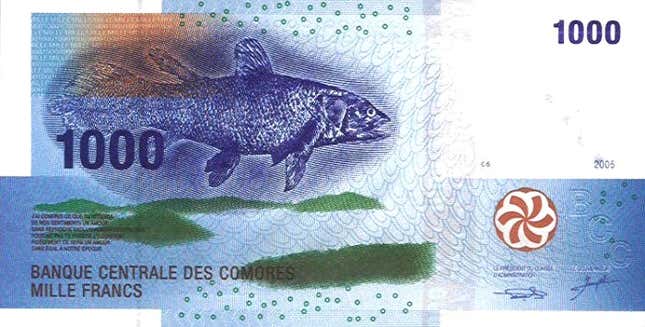
…And this nice image of a Comoran man in a canoe adorns the back. The front of the note—and the warning to counterfeiters—is in French, while the back is in Arabic. Comoros declared its independence from France in 1975, though an infamous French soldier of fortune by the name of Bob Denard essentially remained in control of the country until 1989.
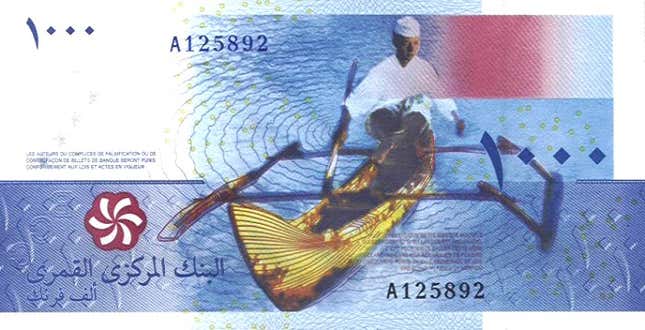
2007
The Bank of Scotland’s £50 note. The write-up from the International Bank Note Society raves about this emerald-tinted scrap of scrip. “Blessed with generous proportions, the note is impressive to hold and uses the available space to excellent effect.” The guy with the textbook haunted Scottish look is novelist Sir Walter Scott, who wrote Ivanhoe and many other things we have not read. And won’t…
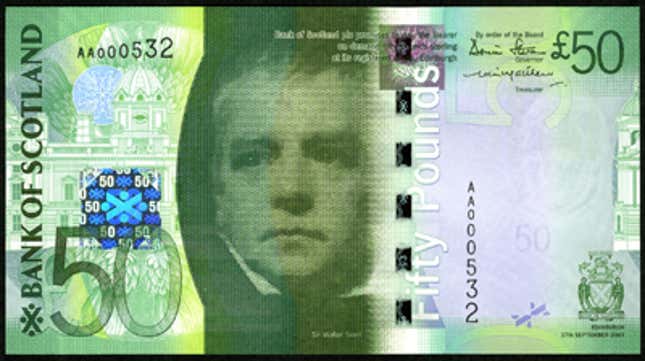
…The 2007 note was part of the Bank of Scotland’s “Bridges Series,” which celebrates famous spans scattered about the land of the thistle. The Falkirk Wheel, on the back of the bill, is like a kind of elevator for boats that connects two canals and has become a top Scottish tourist destination.
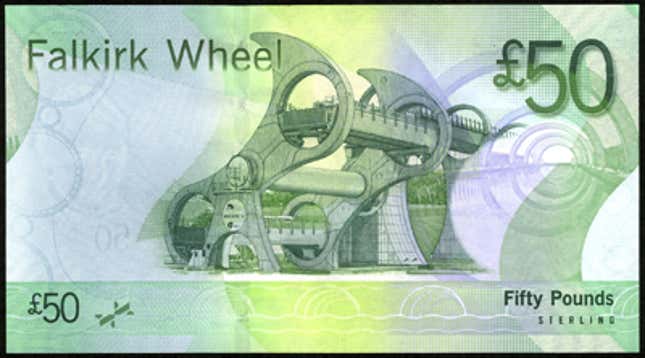
2008
Samoa’s 20-tala bill. Striking colors. A lovely cascade bedecks the front.
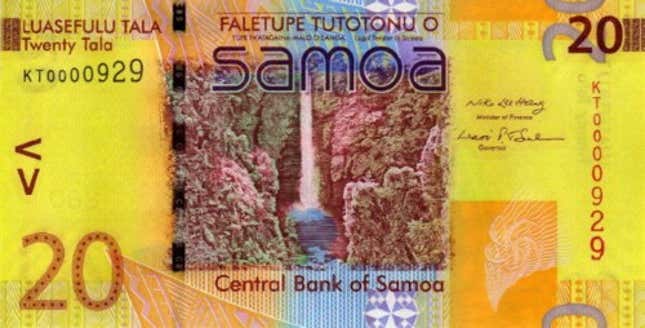
And Samoa’s national bird, the Manumea, graces the back, as does Teuila, the national flower of the nation, which gained its independence from New Zealand in 1962. The southern Pacific country had been a German protectorate from 1900 until World War I. It was known as Western Samoa until 1997, when it dropped the whole “Western” thing.
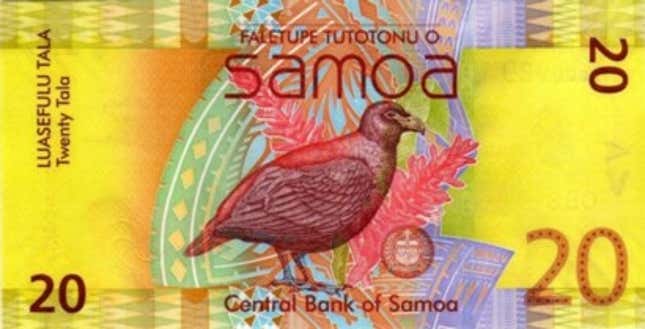
2009
Bermuda’s $2 note. This one really is a beauty. A puffed up Bermuda bluebird towers over a less-than-prominent profile of Queen Elizabeth II on the front of these vertical notes. Bermuda remains a British Overseas Territory…
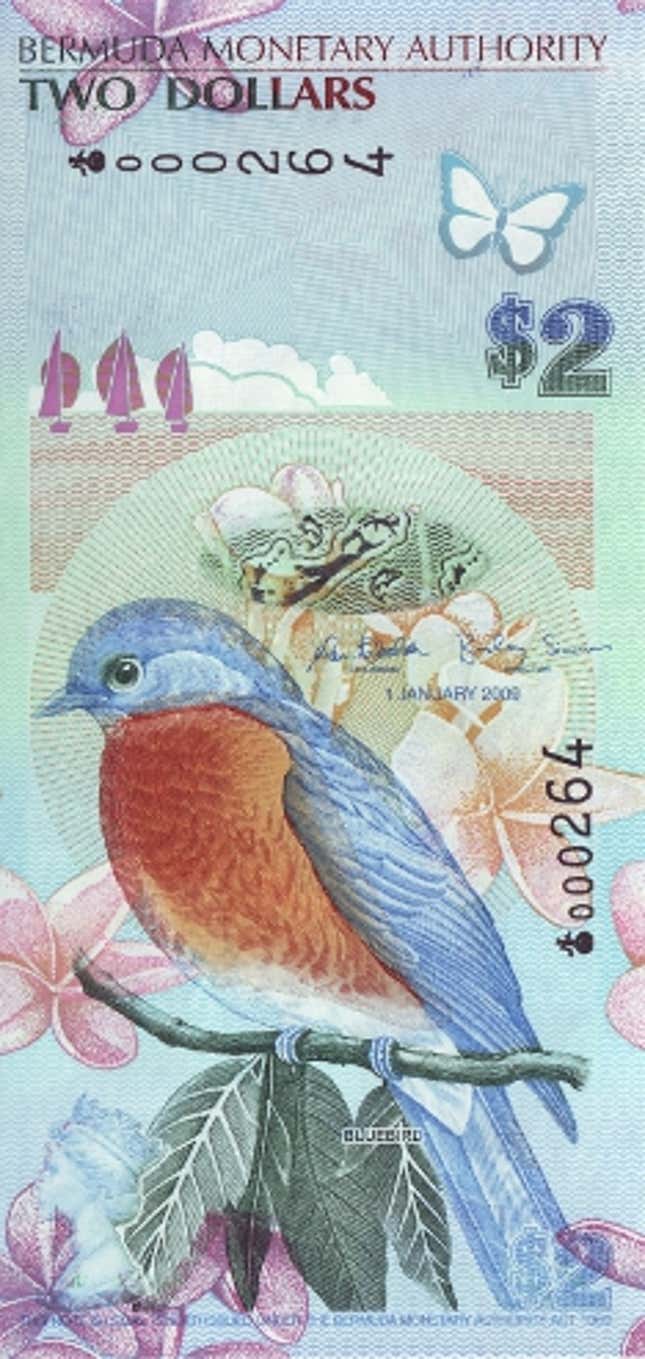
…The back is more subtle, featuring the clock tower at the Royal Naval Dockyard and a famous statue of Neptune.
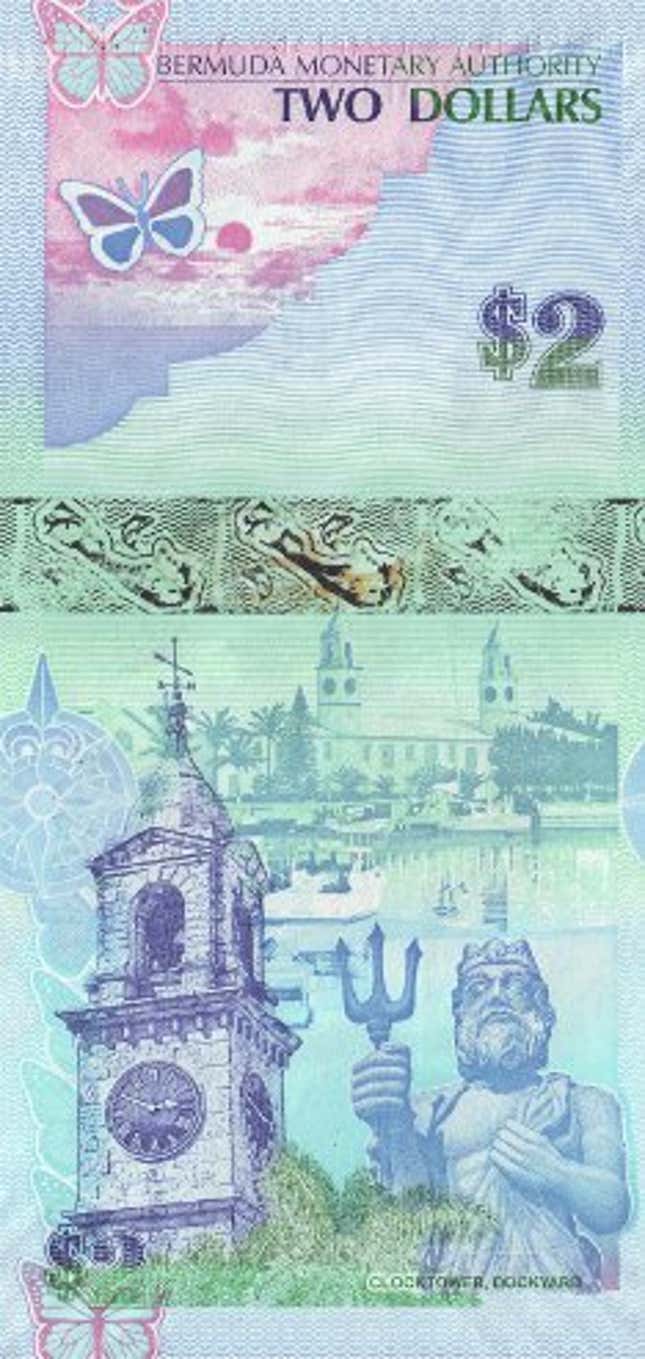
2010
Uganda’s 50,000-shilling note. A finely worked piece of currency with design features such as “the watermark of the head of a crested crane, an outline of a map of Uganda (highlighting the equator), the profile of man wearing Karimojong head dress, patterns based on indigenous basket work and, at the far right on the back, the Independence Monument. Erected to celebrate Ugandan independence in October 1962,” according to the bank note society’s official announcement of the 2010 award.
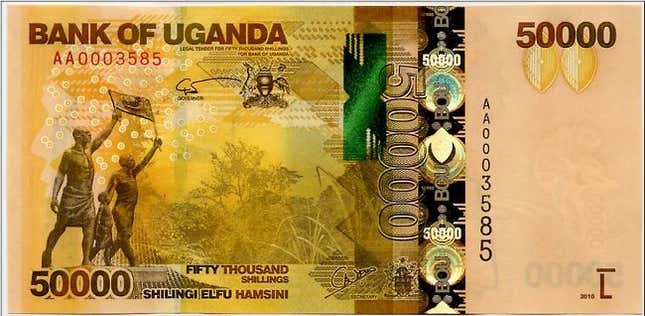
And on the back are beautifully wrought silver-back mountain gorillas.
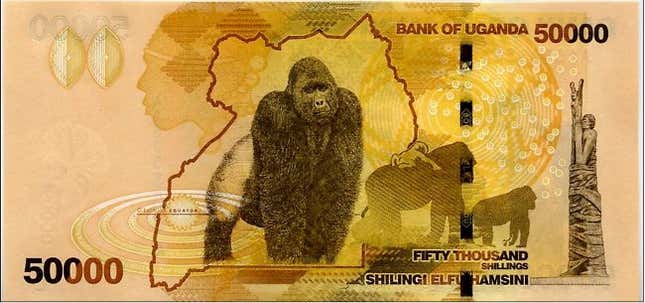
2011
Kazakhstan’s 10,000-tenge note. Released on July 4, 2011 to mark the 20th anniversary of Kazakhstan’s independence, this banknote shows the Kazak Eli monument to independence, displayed vertically on the front.
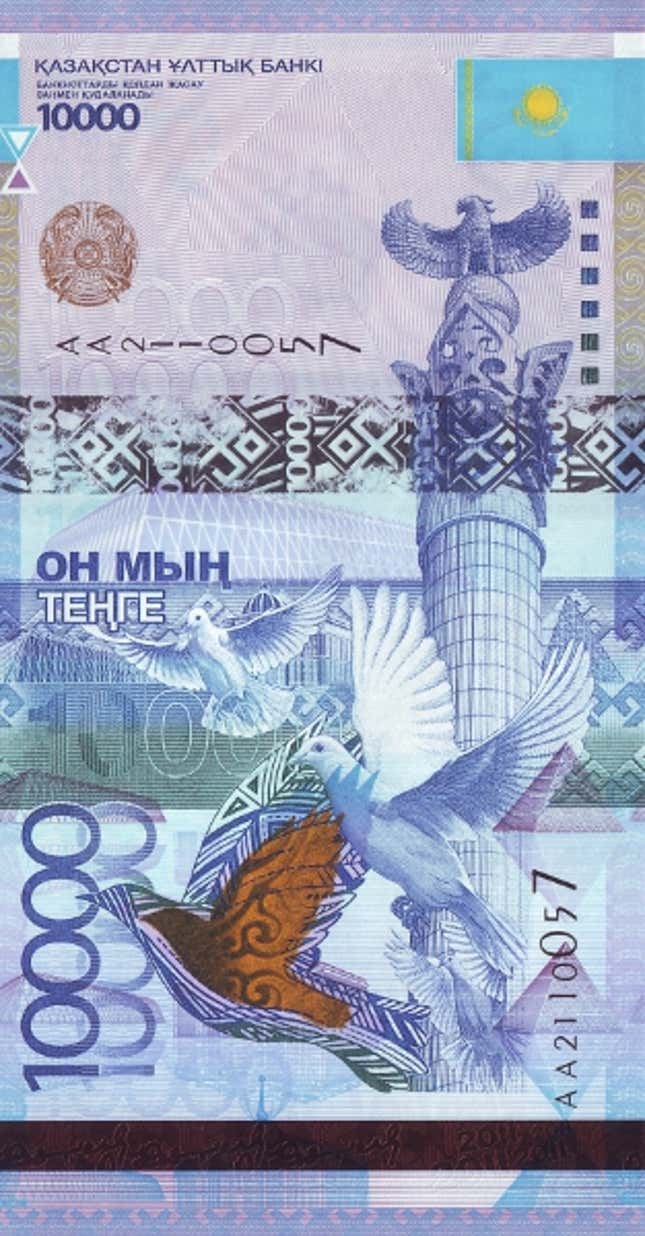
While on the back, you get a nice, horizontal view of the presidential palace in Astana, the second largest city in the country, which has been the capital since 1997. The back also contains the only text in Russian—the words “ten thousand tenge” in a modest-sized font—in a small nod to the country’s Soviet past.
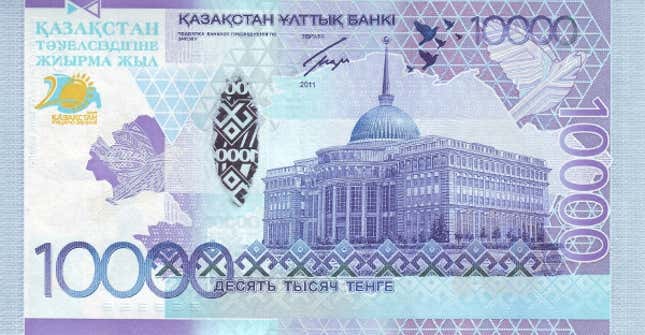
2012
Kazakhstan’s 5,000-tenge note. That’s right! A repeat victory for the oil-rich former Soviet republic, which is fast establishing itself as a powerhouse in global banknote design circles. The front is pretty much the same layout as the bill that took top honors in 2011, except now there’s a stylized panther in mid-pounce.
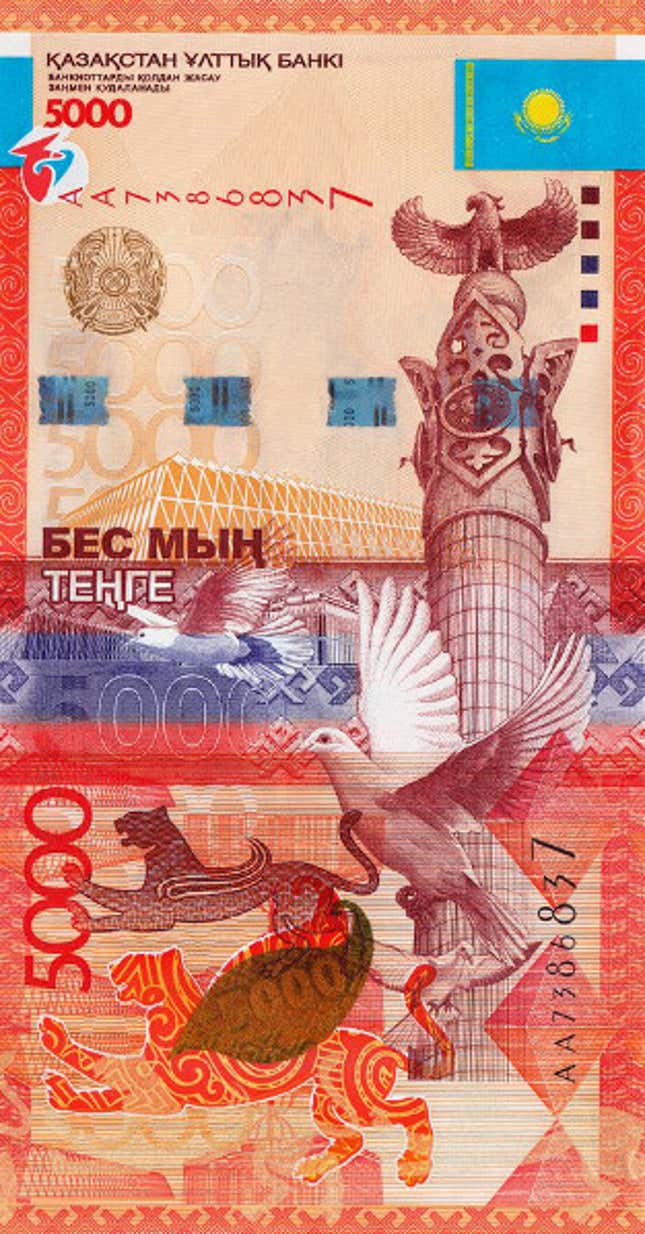
The back is a nice piece of work though. With the with the mountains in the distance, the foreground shows the independence monument in the country’s largest city, Almaty, as well as the rather ugly modern facade of the Kazakhstan Hotel, which is kind-of odd. But, you know, hey, Kazakhstan.
